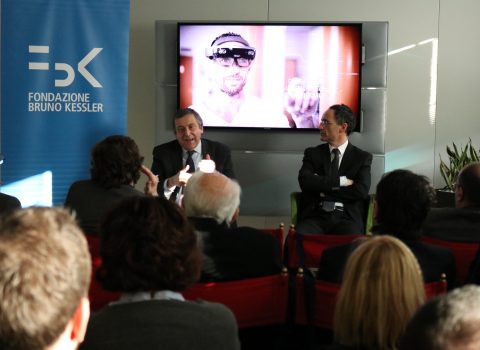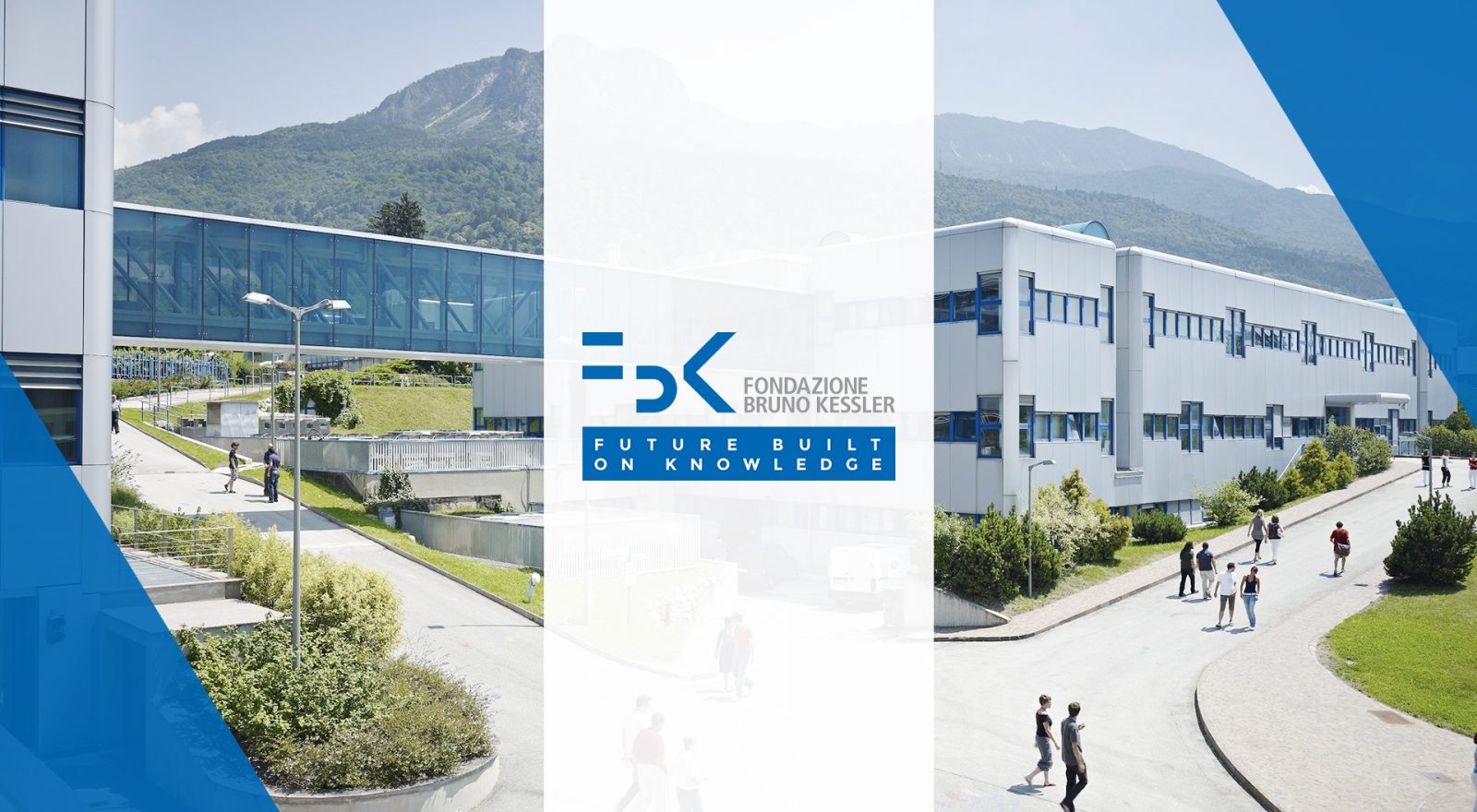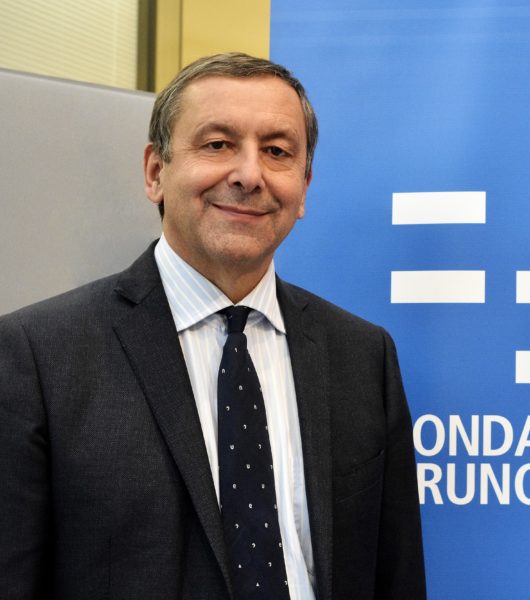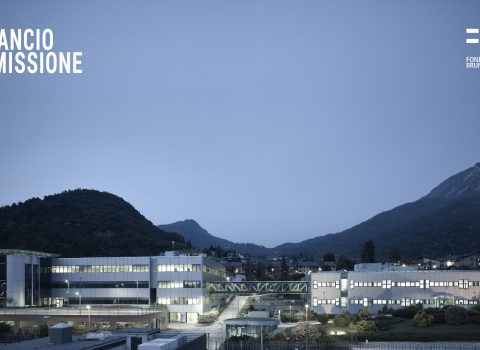
2018 Financial Statements Approved: FBK Is Growing
Fondazione Bruno Kessler closes its balance with a profit. The production value goes up thanks to projects funded by grants and companies
Fondazione Bruno Kessler’s 2018 final balance sheet has been unanimously approved today, with a significant increase in projects funded by grants – especially European ones – and projects funded directly by companies. “A year marked by results that stem from the credibility of our national and international research – said President Francesco Profumo – as shown by the many projects acquired through European calls for grants, as well as by the ability to transfer its results to businesses and to society through innovation projects”.
With more than 60 projects funded directly by companies (15 based in Trentino, 27 in other Italian regions and 20 worldwide), the constant creation of spin-offs and the presence of companies co-located within their property, Fondazione Bruno Kessler expresses its vocation to impact and development of the local area.
ECONOMIC DATA: + € 2,093 million of revenues from external sources
2018 showed a total production value of € 48,618 million, an increase compared to the € 45.924 million of the previous year. Revenues from external sources went up, reaching a value of € 18.396 million compared to 16,303 million in 2017. This increase is due both to the total value of projects with private organizations, which went up from € 4,111 million in 2017 to € 5,553 million in 2018, and to revenues earned from public agencies that increased from € 10,940 million to € 11,401 million in 2018 (8,257 million from European projects, 3,144 million from other agencies).
IMPACT PROJECTS
The agreement with State Printing Institute and Mint were re-launched, a shared laboratory in which one of the main objectives is to investigate how the new Electronic Identity Card 3.0 can be improved both in terms of CyberSecurity and of digital identity management. In particular, two initiatives have been developed: an online authentication solution for digital identity cards 3.0 and the construction of a security system in the authentication developed in the TreC _FSE application (Trentino Salute 4.0’s Citizen’s Health Records). The idea is to increase the level of CyberSecurity while improving the end-user experience for the new cards. In the context of a European project carried out in collaboration, among others, with Poste Italiane, the Italian Postal Service, FBK has also moved into the blockchain industry, developing a solution for the digital chain of trust to be used in the field of logistics and international transportation. Also connected to the theme of mobile vehicles and safety, the Foundation has led – since 2018 – the 5G Carmen project whose aim is to test autonomous mobility on the Brenner corridor. FBK leads a European consortium made up by FCA, BMW, Deutsche Telekom, Nokia Networks, Qualcomm, NEC, which won a call from the European Commission on connected, cooperative and automated mobility. But citizens’ “digital experience” does not stop here: the City Sensing @ TN project, in collaboration with the Municipality of Trento, wishes to experiment an innovative infrastructure able to help administrators and citizens to learn about and understand the city and its phenomena through the use of technological solutions and data analysis. The industrial partners for this project are TIM and DedaGroup. Another impacting topic is the European Common Interest Project (IPCEI) on microelectronics, approved at the end of 2018 by the European Commission to support research and innovation in this industry. The four countries that participate directly in the project, which moves € 1.75 billion in total are Germany, France, Italy and the UK, represented by 29 partners. These resources will be used over the next 5 years to advance innovation in the field of chips, sensors, batteries and materials used in microelectronics. Only two research organizations and only one based in Italy: Fondazione Bruno Kessler, with its Center for Materials and Microsystems that, in the project, will be dealing with the development of enabling technologies. In particular, it will engage in the generation of optical sensors with multiple possible applications, including industrial and medical diagnostics, security, and environmental monitoring.
RESEARCH AND INNOVATION IN EDUCATION
The intense activity of the FBK for Education program continued in 2018, accompanied by various initiatives aimed at facilitating the cultural, professional and social growth processes of younger generations. Starting from education and its more general institutional functions, we must remember the applications developed to manage the experience of school communities effectively (CLIMB, UGAS, Student’s Records). In addition to these, many projects have been carried out in collaboration with the students within the School-To-Work program (SenSAT, ProM Camp, The city of electrons) and many others put in place for the current year, all aimed at improved learning strategies and young people training so that they can make informed choices, as in the case of the series of conferences “Building the Future” sponsored by Piero Angela.
Finally, it should be pointed out that the Foundation, also for 2018, has complied with all the PAT directives regarding the objectives required by the Province budget law.


